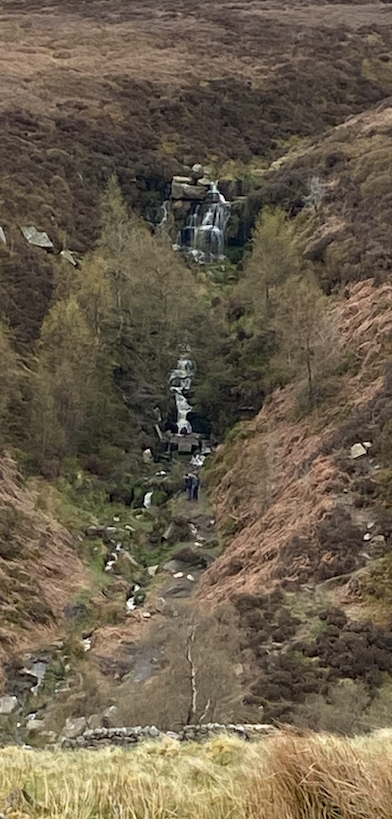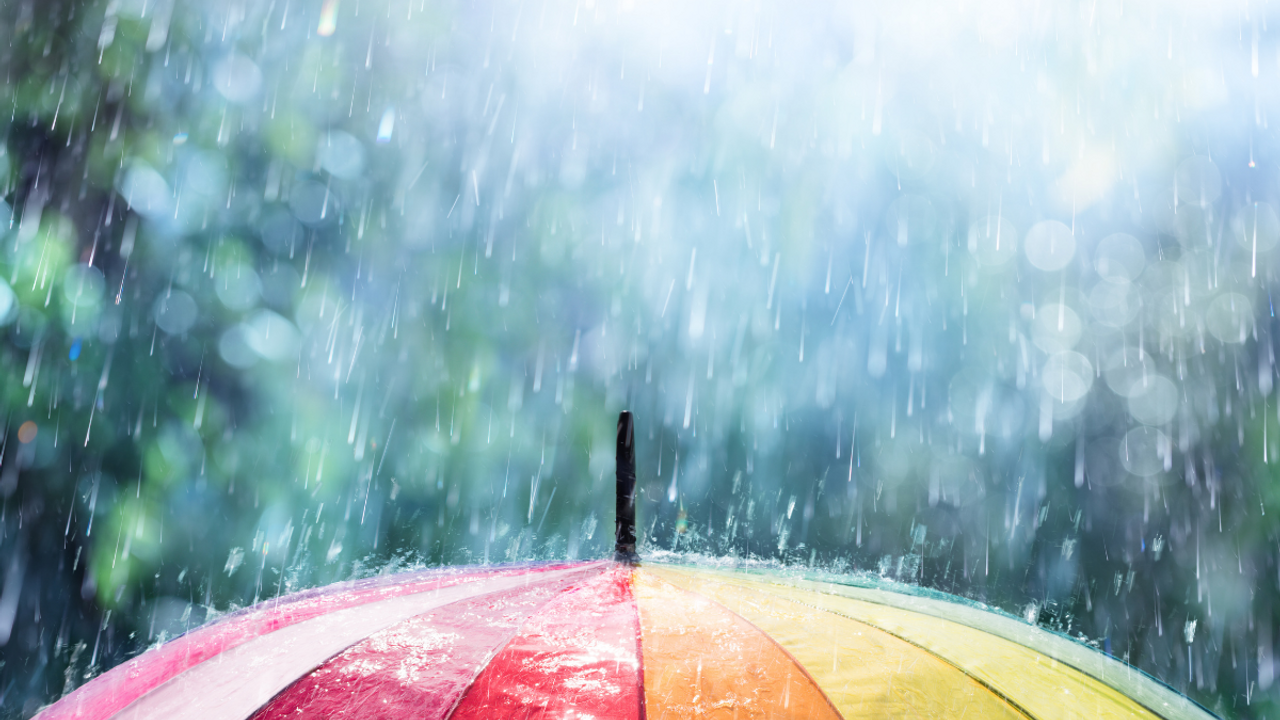Blog
“Strive to make everyday the best day of your life, because there is no good reason not to.” Hal Elrod
How does your practice support your view of the child?

"If children feel safe, they can take risks, ask questions, make mistakes, learn to trust, share their feelings, and grow.”
Alfie Kohn
Inside the Hygge in the Early Years Accreditation we learn about the Reggio Inspired approach and work on developing our own image of the child and discovering what it is about each individual that makes them capable learners. Taking that time to get to know them and considering what makes each one special and tuning in to how they learn. Our own experiences as children, parents and educators shape what this can be and it's important to recognise the strengths and capabilities our individual children have.

I believe that young children are capable of high levels of engagement in their learning. But how can they show this if i'm always the one deciding what we should do around the agenda I have as an adult? I believe that doing this can set them up to fail.
Therefore my understanding of the child must be backed...
‘Wow’ I couldn’t of ever imagined the true impact the Hygge Accreditation would have made on me, my family, and my setting.

"I was spending almost all my earnings on the latest toys and trends to keep the children happy."

Mini Explorers Childcare – Keira Gilbert
I started my childminding journey in January 2020 just before the first lockdown. While I absolutely love working with children, I decided that becoming my own boss meant I had the power to implement changes to my practice I had been wanting to do for years but was always met with criticism. I needed to slow down for myself and for the children, especially during the most challenging obstacle we had ever faced: a worldwide pandemic. I wanted to have the facts and skills to be able to implement this new vision and respond to criticism in an informed and positive way. I compared myself too much to nurseries I had previously worked on and was stuck in a loop of trying to churn out huge activities one after another through the day to appease what I thought parents would be looking for. As well as this I was spending almost all my earnings on the latest toys and trends to keep the children happy.
The vision I had for my setting was...
Why do babies need time outdoors?

"How about if they have to sit on the ground and get dirty?"
"What if my child falls?"
"What if they try to put sand in their mouth?"
"But my baby will get sick being outside?"
"I'm too busy in my day to get outside with my baby"
Taking babies outside offers many benefits on all areas of their development and the earlier they get used to being outside, the sooner their love for nature will develop. It is though their first hand sensory and movement experiences that they learn to make sense of the world and develop key connections in their brain. In order for us to place a greater emphasis on the outdoors in our practice with babies and toddlers we must understand that the outdoors offers a richness that isn't available inside. We don't want to just take out indoor resources and put them outside - we must use the nature around us!
Yet many parents and early educators lack the confidence to make nature based play with babies work. With worries around risk, dirt and over...
"I was very tired, unmotivated and I felt rushed on a daily basis."

My name is Samantha, I am a Registered childminder in southeast London.
I have been a childminder for 17 years and done many training courses. Hygge was the first one that focussed on myself as a practitioner and my well being.
Until I started, I hadn’t realised that this was something I really needed. I was very tired, unmotivated and I felt rushed on a daily basis. Missing out on breakfast and drinking coffee as I set up. I wanted everything to look inviting before 07:30am. I would be disappointed when the children were not engaging in the activity.
Focussing on myself, my vision and the children allowed made me to slow down and I realised I was still offering the cosy caring environment but it needed to be calmer and less manic. I started with having breakfast and a hot coffee before 07:30. I stopped putting out invitations to play but waited for the children to arrive.We talked about what they want to do and we set up areas together. Now we come together...
"I was churning out quantity and not quality and totally wearing myself out, which was ridiculous!"

I have been a registered Childminder since 2002.
I began Childminding after my divorce in 2000.
I wanted to have an occupation where I could work from home and be there for my two daughters and support them through their school life.
Throughout my career I have given 100% and so far achieved 3 Outstanding Ofsted Grades.
Unfortunately I feel that because I have given so much to my job and the families I care for, I have missed out on the main reason for starting this childminding journey......... my family.
For years I thought that my vision was to provide a setting which emulates a school nursery. I would be obsessed with the EYFS Development Guidance, taking multiple daily observations and obsessively completing tracking charts.
I used a variety of online platforms to observe our children and found the whole process to be so time consuming and a complete chore. I felt that because I had constantly done so many observations, I needed to keep up that pace.

In actual fact, I was...
Making Continuous Provision Work For You!
When it comes to organising our Early Years environment setting up high quality continuous provision is crucial. It allows young children to be active learners that are in charge of their own learning while also developing key skills that allow them to flourish as life long learners.
What exactly is continuous provision I hear you ask? It is the every day environment that you create in your setting that's consistently available to the children each and every day and what they can use freely. It's not just about the resources we have available here but it's also about the way we as adults challenge and support the learners through our interactions with the children and the way the daily rhythm is organised. The environment that we create must also be reflective of the cohort of children that we have working with us today and change in response to our observations and knowledge of their needs and interests.
Traditionally we may have waited to make changes...
A Hygge Staycation
Hello there,
I have just returned back to work today after having a really lovely week off. I've called it a hygge staycation and it's been simply wonderful for re-charging the batteries. This last year has been such a busy one that I haven't had quite as much time as I would have liked to simply stop and switch off from work. I know that doing this is really important for my wellbeing and this quieter down time also helps with new creative ideas. Which may I add i'm full of and can't wait to get going again.
As I write this blog post many of you will be taking holidays and staycations local to home this year with the pandemic and I thought it might be helpful to share some of the ways you can switch off and get your hygge fix even without going away.

We began our week off together by taking a 20 minute car journey from our home to the tiny cobbled village of Howarth. It's an area steeped in history and with the famous Literature background of the Bronte sisters it's a...
May Wanderlust Collection

Many of you have now signed up to our monthly collection of Wanderlust resources delivered direct to your letter box (Begin your subscription here). With an aim to support and inspire Wanderlust learning in the home and setting each month.
For those of you have bought our May collection (available here as a one off) I wanted to provide you with a few other simple ideas that you could do around the themes in the collection.
1. Be a dreamer
The patch for this month is to 'Be a dreamer' which has to be one of my favourites. Isn't this what we want for all our children? Have you ever sat down and asked them what they want? Why not talk about what a dream actually is and share some of yours. Then create your very own vision board to show the things they hope for. This could be a collection of images symbolising their dreams stuck onto a piece of paper. Then place it somewhere that you will see often as this increases the chance of it happening.
You could also...
Rainy Day Play Ideas

'And so the rain invites a street of colourful umbrellas to blossom.' Angela Abraham
I love the quote above and it reminds me that it's so important to see the beauty in the rain. After a very dry April the rain we received here in Yorkshire yesterday was very welcome.
I wanted to share a few rainy day ideas for you this Spring to support your nature based practice.
1. Head outside and smell the rain
We're often in such a race to get out of the rain, perhaps running to get inside, that we forget to actually experience the rain. Get dressed up in suitable waterproof clothing and head outside to smell and feel the rain. How does it sound? What temperature is the rain as it hits your skin (does it feel warm or cold?) What shapes do we notice the raindrops make as they hit the ground? Can you take 5 big deep breaths in and feel the rain calm your senses? As you tune in and smell the rain this is called Petrichor and it is the earthy scent produced when rain falls...



